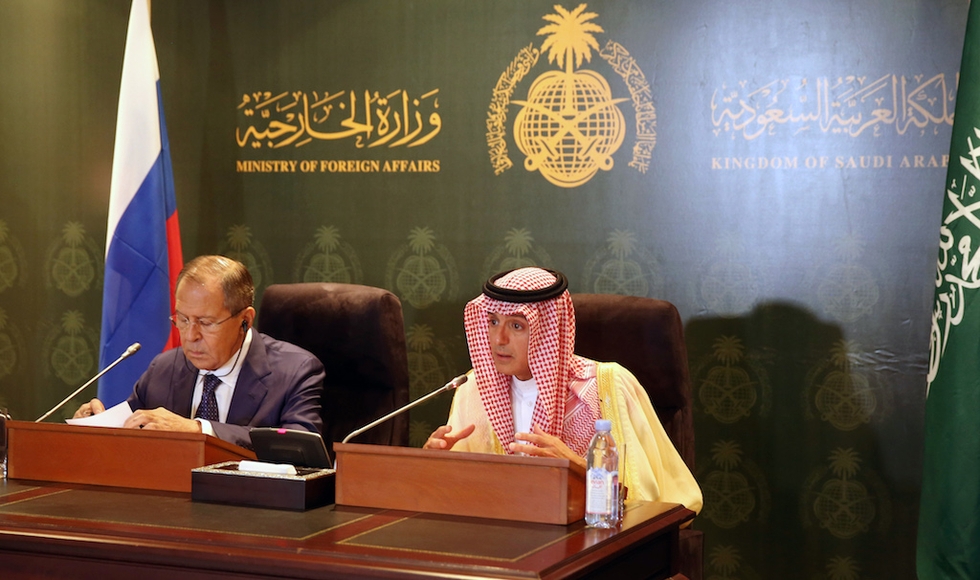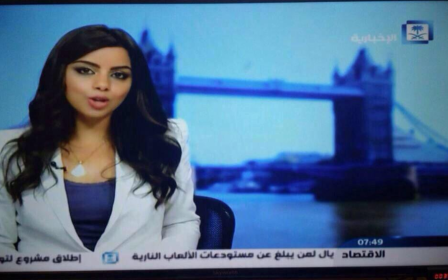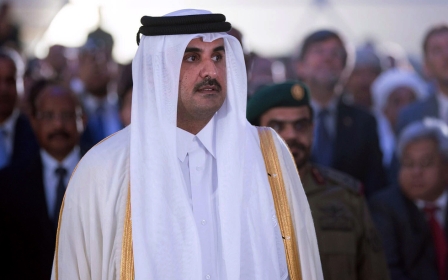Saudi Arabia denies warming relations with Iran

Saudi Foreign Minister Adel al-Jubeir on Tuesday denied any warming of relations with regional rival Iran after Tehran thanked Riyadh for its handling of the annual Hajj pilgrimage.
"If Iran wants to have good relations with Saudi Arabia, it has to change its policies. It has to respect international law," Jubeir told a press conference in London.
"The Hajj is a religious obligation, it has nothing to do with politics," he added, referring to the pilgrimage which forms one of the five pillars of Islam.
Despite the two countries having severed diplomatic relations in January 2016 after Iranians stormed the Saudi embassy in Tehran, some 86,000 Iranian pilgrims took part in the Hajj last week.
Iranians had been unable to participate in 2016 after talks collapsed over security concerns, following a stampede the previous year which killed up to 2,300 people, including hundreds of Iranians.
Earlier on Tuesday, Iran had thanked Saudi Arabia for running a successful Hajj this year, saying it opened the way for negotiations.
We are interested in all those mediatory efforts that are currently being made producing results and the unity of the Gulf Cooperation Council being restored
- Sergei Lavrov, Russian foreign minister
"We thank Saudi Arabia ... for adopting a new approach in dealing with Iranian pilgrims," said Ali Ghazi-Askar, the head of the Hajj organisation in Tehran, according to the state broadcaster.
He added that it marked an opportunity for the two sides to "resolve their bilateral issues in other fields".
Iranian Foreign Minister Mohammad Javad Zarif was more cautious, saying he had yet to see "a clear prospect for change" in the relationship.
Russia's foreign minister on Sunday urged Arab countries and Qatar to enter into direct talks to solve the diplomatic crisis in the Gulf.
Saudi Arabia, Bahrain, the United Arab Emirates and Egypt severed ties with Qatar on 5 June, accusing it of supporting terrorist groups - a charge it denies.
"We have confirmed our position [that we are] in favour of settling the disagreements by means of negotiations, by directly expressing concerns and achieving solutions which would take into account the concerns and the interests of all parties," the minister, Sergei Lavrov, told a news conference in Jeddah with Jubeir.
"We are interested in all those mediatory efforts that are currently being made producing results and the unity of the Gulf Cooperation Council being restored," he added.
Saudi Arabia says seeking 'clarity'
Kuwait and the United States have been mediating to reach a breakthrough in the three-month long crisis that has put the whole region on edge, and prompted Turkey to send troops to the wealthy Gulf state in a sign of support.
Last week, Saudi Arabia suspended any dialogue with Qatar, accusing it of "distorting facts," just after a report of a phone call between the leaders of both countries suggested a breakthrough in the Gulf dispute.
Jubeir told the news conference that Qatar needed to show seriousness in finding a solution to the crisis.
"We want clarity in the Qatari position, we want seriousness in finding a solution to this crisis that leads to the implementation of principles which all countries support: no supporting terrorism, no welcoming unwanted guests, no spreading hate, no intervention in others' affairs," Jubeir said.
The two ministers also discussed the planned de-escalation zones in Syria and unification of the Syrian opposition.
"The kingdom supports the creation of de-escalation zones and looks forward to starting a political process that will end the Syrian crisis," Jubeir said.
President Bashar al-Assad's negotiators have not met directly with the opposition because there is no unified delegation from the High Negotiations Committee and two other groups, known as the Cairo and Moscow platforms, all claiming to represent the opposition.
New MEE newsletter: Jerusalem Dispatch
Sign up to get the latest insights and analysis on Israel-Palestine, alongside Turkey Unpacked and other MEE newsletters
Middle East Eye delivers independent and unrivalled coverage and analysis of the Middle East, North Africa and beyond. To learn more about republishing this content and the associated fees, please fill out this form. More about MEE can be found here.




